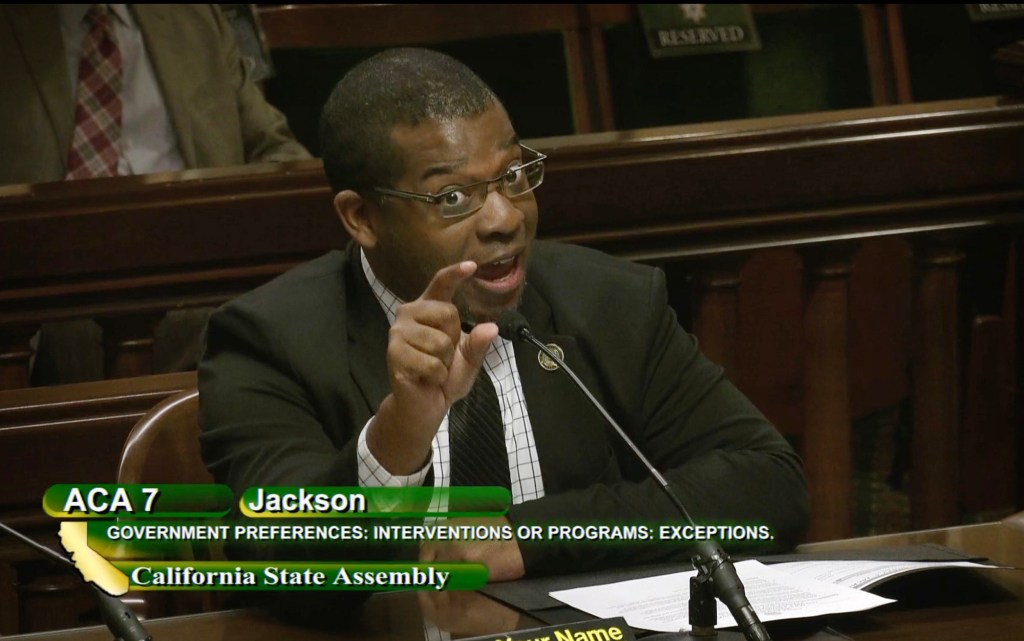
California entered the Union as a free state. Along with soldiers fighting for the Union Army, according to California State Parks, “the state’s rich gold mines and pro-Union business elite” bankrolled President Abraham Lincoln’s U.S. treasury in the Civil War that ended slavery.
That’s reason enough for Gov. Gavin Newsom to veto Assembly Bill 7, by Assemblymember Corey Jackson, D-Moreno Valley. Under AB 7, colleges and universities “may consider providing a preference in admissions to an applicant who is a descendant of slavery … to the extent it does not conflict with federal law.” In other words, it’s a roundabout way to do what California voters have already rejected and permit racial discrimination in admissions processes.
The “descendants” wording is designed to get around Proposition 209, which voters passed in 1996. Prop. 209 prohibited discrimination by state institutions “on the basis of race, sex, color, ethnicity, or national origin.” In 2020, Californians overwhelming rejected Proposition 16, which sought to overturn Prop. 209, with 57% of Californians defending equality under the law.
As Californians for Equal Rights Foundation contends, “AB 7’s implementation would certainly lead to de facto racial preferences without facilitating any meaningful changes to ameliorate structural problems at the K-12 level including declines in academic performance and the persistent achievement gaps among different demographic groups.”
There are other reasons to doubt the legal viability of AB 7. In the 2023 decision Students for Fair Admission v. Harvard, the U.S. Supreme Court held affirmative-action admissions “violate the Equal Protection Clause of the Fourteenth Amendment.”
Although well intended to help disadvantaged Black Californians, AB 7 masks the real problem: poor preparation in the state’s K-12 public schools. The Smarter Balanced assessments of all K-12 students for 2024 found just 47% met state standards for English Language Arts and 37% for math. For Black students, it was worse, just 24% proficiency in English and 18% in math. Hispanic kids were likewise lagging the state average, 37% proficient in English and 30% in mathematics.
What’s needed is to prepare them. For that, more school choice is needed to give parents options. That means more charter schools and, ideally, Arizona-style universal school choice that includes private schools. The Legislature needs to stop posturing and take on today’s major impediment to achievement, the teachers unions. Papering over the failure of the public education system by endorsing de facto racial discrimination in admissions decisions is clearly the wrong way ahead.
Originally Published:



